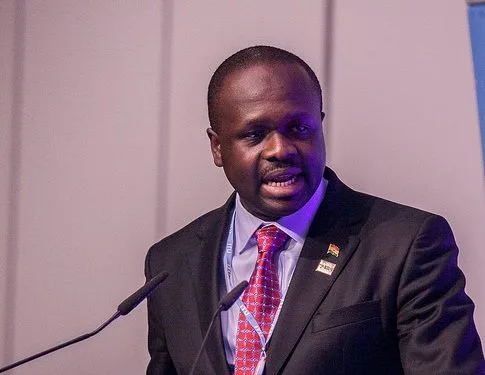Youth unemployment and poverty may be fuelling violent extremism in Ghana and the wider Sahel region, Minister for Defence, Dr Edward Omane Boamah, has warned.
Speaking on Tuesday, July 15, 2025, at the National Forum of the Sahel Peace Initiative (SPI) in Accra, Dr Boamah said insecurity in places like Bawku cannot be resolved through high-level negotiations alone.
He urged both government and civil society organisations to listen more to communities most affected by the violence.
“Negotiations in the boardrooms do not always bring peace. We need to listen to the people on the ground,” Dr Boamah said.
“Local communities are the backbone of peacebuilding. The bottom-up approach must complement our efforts from the top.”
The Defence Minister, who had just returned from an emergency National Security Council meeting on renewed violence in Bawku, said President John Dramani Mahama remained determined to end the decades-long conflict in the Upper East town.
He disclosed that the National Security Coordinator, the Minister for the Interior, the Chief of the Defence Staff and the Inspector General of Police had each been assigned “coordinated but substantive roles” to help restore peace.
The forum was held under the theme, The Political Economy of Conflict in Ghana: Addressing Youth Unemployment as a Catalyst for Security and Social Cohesion.
Dr Boamah told the gathering that the growing instability in the Sahel and northern Ghana was closely linked to economic exclusion and rising joblessness among the youth.
“Whether it is unemployment that begets instability or instability that worsens unemployment, either way you are not wrong,” he told the audience of religious leaders, policymakers and civil society representatives.
“If we do not create equitable opportunities, the inequality itself will breed conflict in communities where extremists thrive.”
Dr Boamah commended the SPI for involving religious leaders in peacebuilding efforts and called for greater interfaith dialogue and cooperation.
“Faith can be a powerful unifying force,” he said, adding that “blessed are the peacemakers” must go beyond words, especially in light of current threats.
He announced that the Ghana Armed Forces would recruit 12,000 young men and women over the next three and a half years. He explained that the recruitment exercise would be spread across all regions, not limited to selected capitals.
“This is how we make sure no Ghanaian youth feels left out of national development,” he said.
Dr Boamah also spoke about the need to support women and girls in conflict-affected areas, acknowledging both their vulnerability and their role in rebuilding resilient communities.
He ended by affirming support for the Sahel Peace Initiative and encouraged all stakeholders to advocate for fair policies, build local capacity and take practical steps toward lasting peace.
“Together, we can make a difference,” he said.

